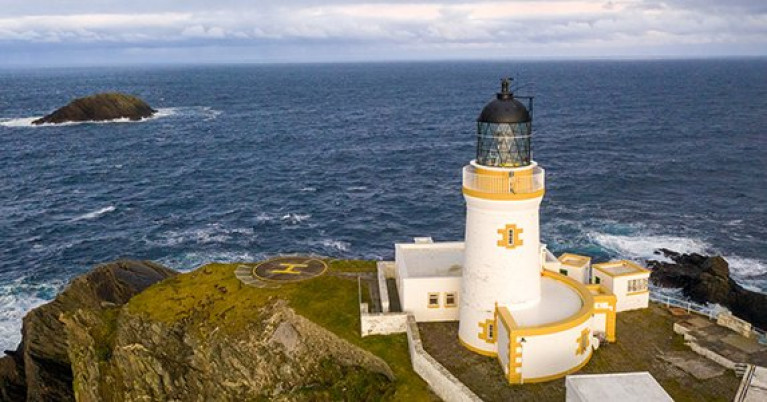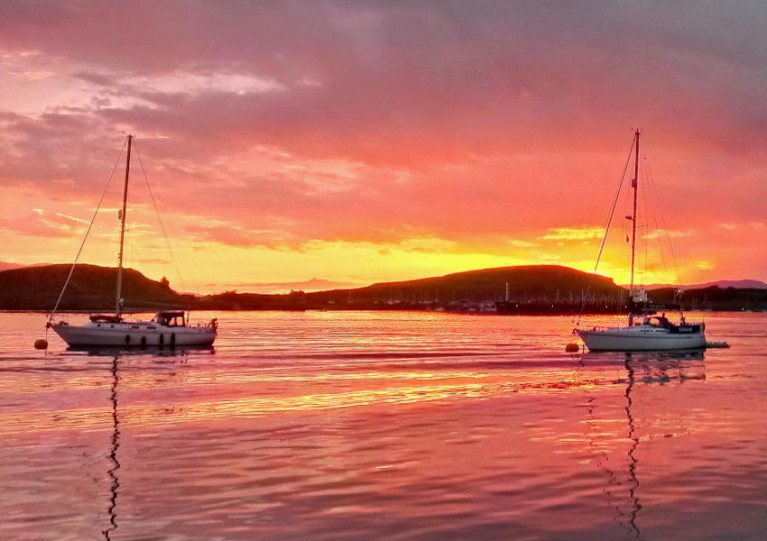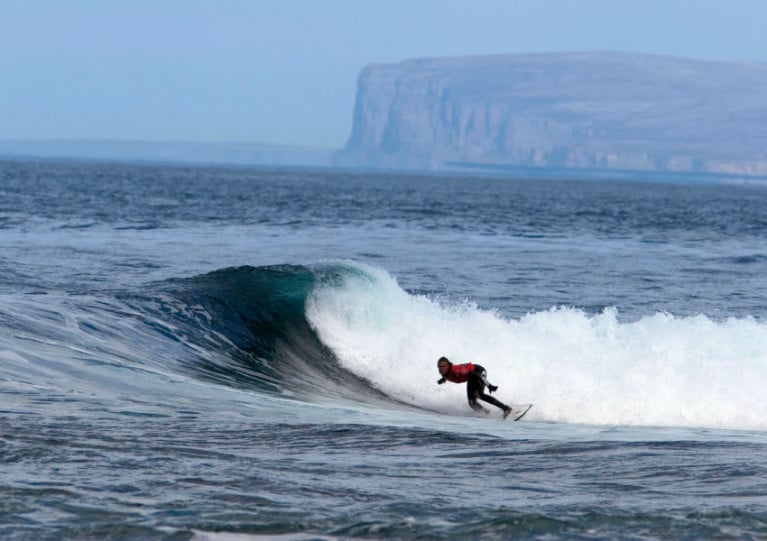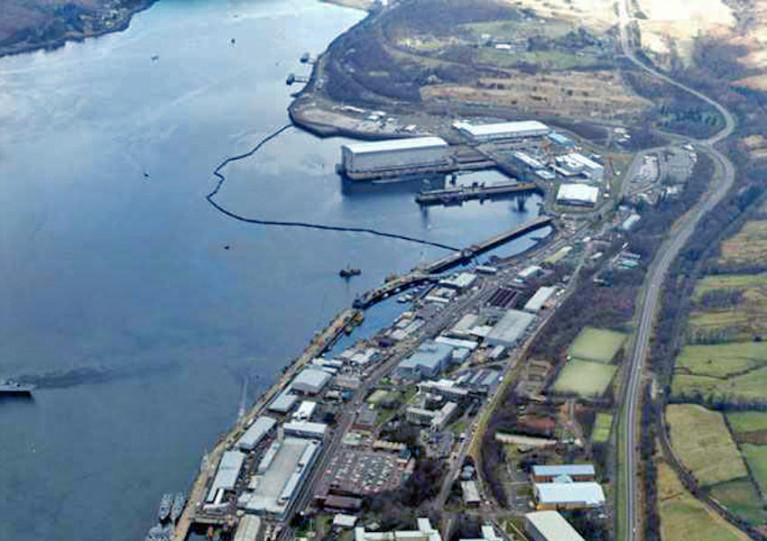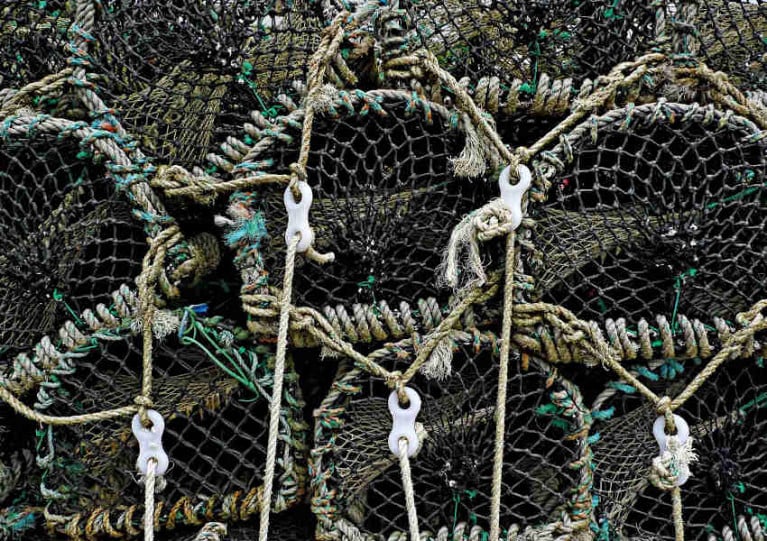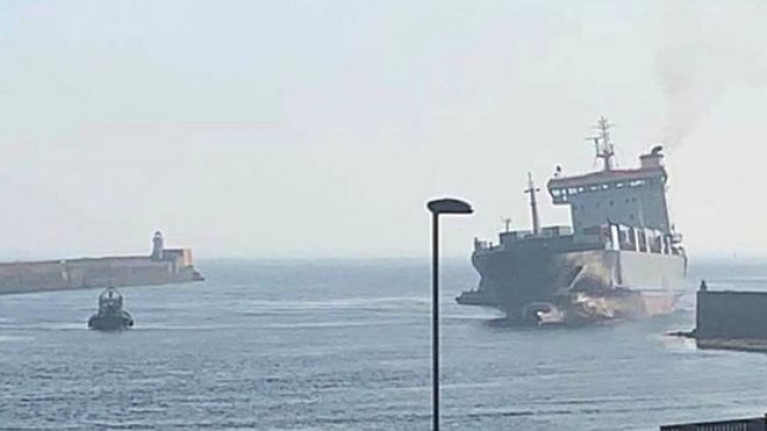Displaying items by tag: Scotland
The RNLI is on the lookout for budding lifeguards to launch their lifesaving careers on some of the most popular beaches in Scotland, Northern Ireland and elsewhere in the UK.
Recruitment for this season’s lifeguard team has started nationally in preparation for providing local authorities and landowners with the service they request to keep the nation’s beachgoers safe this summer.
The charity’s lifeguards not only rescue those in difficulty in the water, they also provide vital beach first-aid and safety advice to ensure visitors can return home safely.
In 2022, RNLI lifeguards provided patrols and responded to more than 18,000 incidents, helping more than 24,000 people in need and saving 117 lives.
Last summer, lifeguards plucked stricken swimmers from powerful rip currents, saved children being blown offshore in inflatables, came to the aid of paddle-boarders and gave lifesaving CPR on beaches among the thousands of incidents they attended.
Successful applicants will receive world-class lifesaving training, enjoy good rates of pay, the possibility of flexible working patterns and develop valuable skills for a future career.
Lachlan Edwards, lead lifeguard supervisor for Scotland said: “To anyone thinking of becoming a lifeguard, just do it. It’s the best job, it’s so rewarding, and it keeps getting better – there’s so much opportunity for growth in the role.
“I love being outside on the beach all summer and sharing my knowledge with people. It often doesn’t feel like a job because I enjoy it so much, which is something a lot of lifeguards say.”
Lee Fisher, lifeguard experience manager said: “Beach lifeguarding is a great opportunity and a very rewarding role that changes lives — including your own — all whilst enjoying the beach as your office.
“Our lifeguards range from teenagers all the way up to lifesavers in their 70s, as long as you meet the fitness requirements and you are over 16 years old, there could be a role for you.
“The job also has great paths for progression — we have lifeguards who have been working for the RNLI for years, both on the beach and as part of our support teams, and the skills you gain can make an ideal first step towards many careers. It’s a great opportunity whether you want a rewarding summer job or to pursue a career in lifesaving.”
Find out more about becoming a lifeguard at rnli.org/BeALifeguard.
Boaters looking to cruise the inland waterways of Scotland and England are advised of low water levels in canals and rivers across Great Britain.
The Canal & River Trust, Environment Agency and Scottish Canals have recently circulated updates to all boaters warning of low water levels in parts of Scotland, the north of England and the Thames.
Having already closed some locks temporarily and introduced reduced operating times in place on several other waterways, the Canal & River Trust is taking action to manage the very low water levels in the north of England.
However, it says further difficult decisions are now needed to conserve water. It is reported that additional temporary closures will be needed in August unless there is a significant improvement in water levels.
A combination of a dry spring that has continued into a hot, dry summer and essential reservoir repairs taking place across the region meant that the amount of available water was already less than usual, causing water supplies in the north to drop to historically low levels.
Although water management has been operation in some locations since the start of April and despite volunteer lock keepers helping to manage boat traffic at lock flights to ensure water supplies are used as efficiently as possible, the lack of rain has meant the reservoirs have not had a chance to refill and there is not enough water to supply the canals, the trust says.
It is now asking boaters across the country, with the help of volunteer lock keepers, to be even more careful than usual to conserve water. Boaters can help by sharing locks where possible and making sure paddles are fully closed after use.
To find out about stoppages and water levels affecting navigation, visit the Canal and River Trust website.
In Scotland, water reserves are also coming under pressure on the Lowland Canals with leakage issues through and around a number of historic lock gates on the Forth & Clyde Canal, compounding the issue.
The Scottish Canals operational team says it is struggling to maintain water levels at a number of locations, in particular on the eastern side of the canal between Lock 16, Camelon and The Kelpies.
All unnecessary trips through the Falkirk flight are currently being restricted, since noon last Tuesday 19 July. This will affect mainly holiday hire boats and leisure boats visiting The Kelpies for an overnight stay. Sea-to-sea transits will be maintained and should be booked through the boat movements team as normal. Scottish Canals says the restriction will be lifted as soon as it is safe to do so.
Water levels are also a concern in England’s southeast, with the Environment Agency asking users of the non-tidal Thames to make sure locks are as full as possible when used to save water.
Some parts of the upper Thames are already experiencing very low flows, especially in backwaters and tributaries. Above Iffley Lock the agency cannot guarantee the navigation channel will always be sufficiently deep for craft with a draft of 0.9m or more. And it warns that it may become necessary to close locks outside of normal lock-keeper hours of duty.
The aim is to avoid emptying locks unless they contain at least one boat as a considerable volume of water is released downstream each time a lock is used, the EA says. It is also encouraging boaters to plan ahead to minimise the use of locks along their journey.
See the ‘Information for boaters’ section of the EA website for updates, and subscribe to get advised of any Thames river restrictions and closures by emailing [email protected].
The RYA adds that there are expected to be further warnings for low water levels in these and other areas in the coming weeks. Boaters using the inland waterways are encouraged to plan ahead and to check local water reports before travel.
Northern Lighthouse Board Is Announced as Finalist in 'Working Families Best Practice Awards'
The Northern Lighthouse Board which is responsible for the waters surrounding Scotland and the Isle of Man, has been named as a finalist in the Working Families Best Practice Awards.
The NLB has been shortlisted in the category Best for Mental Health & Wellbeing. The awards celebrate employers whose stand-out cultures and working practices are leading the way in flexible and employee-friendly workplaces.
Mike Bullock, Chief Executive of the Northern Lighthouse Board said: “It is a huge honour to have been shortlisted for this award. Our people are the most precious and important asset we have, and our aim is to provide a supportive and healthy working environment to allow every member of NLB’s team to thrive.”
The other finalists in the category are Arnold Clark and Santander.
The winners will be announced at an awards event at Vintner’s Hall in London on 8 June 2022, with the official event partner Bright Horizons Work+Family Solutions.
Researchers Use Drones to Detect Dolphin Pregnancies
Pregnancies in bottlenose dolphins can now be determined from images captured by drone, according to new research.
As the Irish Examiner reports, marine scientists from University of Aberdeen and Duke University have flown drones over the Moray Firth Special Area of Conservation in Scotland to collect overhead images of dolphin pods.
From these, the researchers believe that by measuring the body width of this protected marine wildlife species, they can determine which dolphins may be with calf.
“Previously, we only knew if female bottlenose dolphins were pregnant if they were later seen with a calf,” said Dr Barbara Cheney of the University of Aberdeen.
“As a result, we only knew about successful pregnancies, and didn’t know how many pregnancies failed or how many calves died before we saw them.”
The Irish Examiner has much more on the story HERE.
Excited to share our research using aerial photos to measure length and width of known bottlenose dolphins, and determine pregnancy status ➡️ https://t.co/TyifGXCO84@NicolaJQuick @MarineUAS @RSECJournal @UoABioSci @aberdeenuni https://t.co/Q9lN29By0f pic.twitter.com/FRGkFCJrsJ
— Lighthouse Field Stn (@CromartyLH) February 14, 2022
Firm With Irish HQ Installs Portside Pontoon for Servicing Scotland’s Largest Wind Farm
An Irish company has installed a new pontoon for the servicing of Scotland’s largest offshore wind farm, as Marine Industry News reports.
Inland and Coastal Marina Systems, which is headquartered in Banagher in Co Offaly, was contracted to provide for the 30m x 4.4m heavy-duty pontoon.
It will allow allow safe berthing and access for vessels transferring work crews to and from the Seagreen wind farm project, which is currently under construction in the North Sea some 27km off the county of Angus.
The pontoon is installed at Montrose Port’s South Quay and comes with specialised anti-slip decking and a 20m access gangway with a cantilevered shore frame platform.
Marine Industry News has more on the story HERE.
Support Scheme for Scottish Marine Tourism Businesses Opens for Applications Next Week
A £2.5m fund to help marine tourism businesses in Scotland restart operations in 2021 will be open for applications from next week, according to Marine Industry News.
The Marine and Outdoor Tourism Restart Fund is part of an overall £104.3m support package for tourism businesses affected by the coronavirus pandemic.
As previously reported on Afloat.ie, the fund is aimed at supporting businesses through the expense of gearing up for the 2021 season.
Both inland and coastal operators will be eligible to apply for grants from £1,000 up to £15,000 in the VisitScotland-administered scheme, which opens at noon on Tuesday 2 February.
“Industry surveys indicated over 75% of operators in the charter and small cruise sector secured two months or less of trading in 2020,” Sail Scotland chief executive Alan Rankin said.
“Managers of local visitor moorings and pontoon services faced a vastly curtailed season, many of whom are not for profit community led groups operating on extremely thin margins.
He added: “The importance of supporting the sector at this time of year is vital, not just for direct jobs but also the valuable economic benefits marine tourism brings to rural and remote coastal and island communities.”
Marine Industry News has more on the story HERE.
Upcoming Webinar Series to Discuss Scotland’s Strategy for Sailing & Adventure Tourism Post-Covid
Scotland’s vast potential for sailing and adventure tourism post-Covid-19 is the focus of a new webinar series next week.
Marine Industry News reports on the online inaugural Adventure Tourism Week, an initiative of VisitScotland, Wild Scotland and Sail Scotland.
The five-day programme of live online seminars will explore what affects the coronavirus pandemic has had on the adventure tourism sector in Scotland, and how the region can capitalise on emerging trends around the world.
“The commercial sailing charter and holiday sectors have been severely impacted by the pandemic,” says Sail Scotland chief executive Alan Rankin.
“This event will provide a positive stepping-stone for future planning, provide a much-needed confidence boost to businesses and help focus attention on the sector that can be at the very heart of tourism recovery in Scotland.”
Marine Industry News has more on the story HERE.
Three northern bottlenose whales were the subject of special rescue operation in Western Scotland yesterday (Thursday 1 October) as boats worked to guide them out to sea ahead of a major military exercise.
As the Guardian reports, rescue teams led by British Divers Marine Life Rescue formed a barrier with their boats as they coaxed the whale pod towards the Firth of Clyde and away from Loch Long, near the Faslane naval base west of Glasgow that will host the international Joint Warrior exercise next week.
The deep-water beaked whales, which are rarely seen in inshore waters, have been monitored in the area over the past month — with observers expressing concern over the health of one of the trio, even aside from their sensitivity to underwater sounds, according to BBC News.
The whales are of the same marine wildlife species that died in a stranding in Donegal this past August which was described as the largest of its kind in Ireland, as previously reported on Afloat.ie.
The UK’s Cruising Association’s Regulations and Technical Services group (RATS) has welcomed the move by the Scottish government to update its rules for marking lobster pots in Scottish waters.
The best practice guidance, which came into force on 20 June, makes unlawful the marking of a string of creels (lobster or crab pots) with anything other than a buoy made for that purpose.
RATS said it has been “vociferously campaigning” for clearer marking of static fishing gear and lobster pot markers since 2017, and will be pressing for England, Wales and Northern Ireland to follow suit.
More details on guidance for marking fishing creels in Scottish waters can be found on the Scottish government website HERE.
The Isle of Man Steam Packets' chartered in MV Arrow, which is used by the Manx ferry operator to cover freight traffic, ran aground in Aberdeen Harbour, Scotland (yesterday).
The (ro-ro freightferry),reports Manx Radio, is on a sub-charter to Serco-Northlink for Aberdeen-Northern Isles services (see related Afloat story).
According to the BBC News, the Arrow 'got into difficulties during manoeuvres on its arrival from Lerwick (Shetland) early this morning, and ran aground at the entrance to the harbour.
She was freed by harbour tugs, with no injuries reported, whilst a full investigation with the relevant parties will be conducted.
The vessel is on a long-term charter to the Steam Packet, but has been sub-charted to Serco-Northlink for two weeks.
It's being managed and crewed by Seatruck Ferries during this period.



























